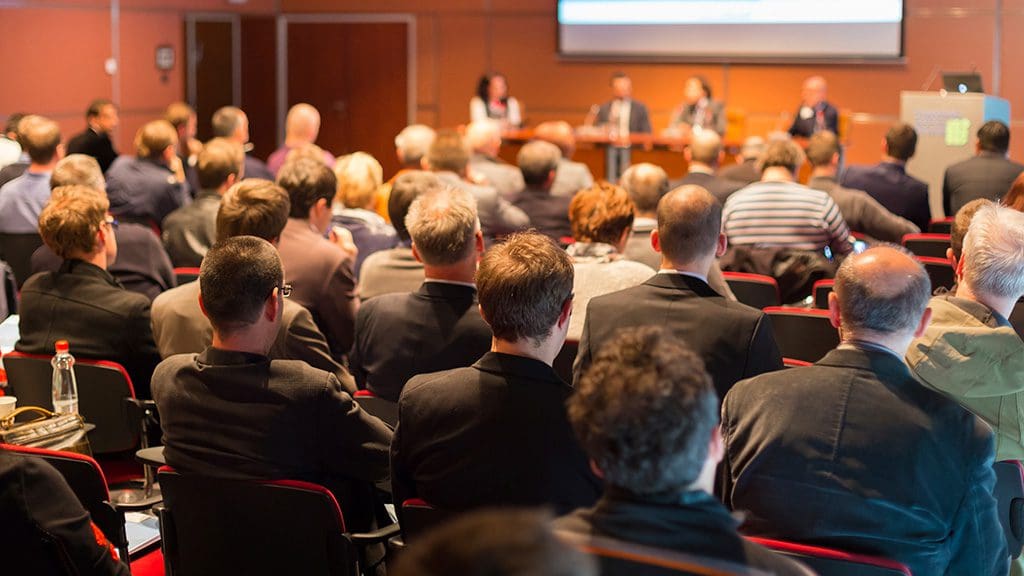As technology grows more and more pervasive across the ways that governments and citizens interact and relate with one another, hard ethical questions have arisen around the concepts of data, privacy, security and the potential benefits to and unintended consequences on human wellbeing. IEEE in recent years has worked to introduce a variety of platforms for open, multidisciplinary conversation and understanding around topics such as these, and today, as the world’s governments come to confront the questions in more concrete ways, IEEE is increasingly sought as a resource for credible insights and actionable recommendations.
The 2019 gathering of the World Government Summit in Dubai, United Arab Emirates, was emblematic of this shift from principles to practice. “The World Government Summit is a global platform dedicated to shaping the future of governments worldwide. Each year, the Summit sets the agenda for the next generation of governments, focusing on how they can harness innovation and technology to solve universal challenges facing humanity.”[1] At the summit’s 10-12 February gathering, IEEE contributed in a terrific range of discussions around artificial intelligence (AI) and autonomous and intelligent systems (A/IS). Participation in the conference was facilitated by the generous invitation of His Excellency Omar bin Sultan Al Olama, Minister of State for Artificial Intelligence in the United Arab Emirates, and the in-depth efforts of Cyrus Hodes and Daniel Ahmed, who facilitated the Global Governance of AI Workshop to which attendees from IEEE and The Council for Extended Intelligence (CXI) were invited.
For example, Konstantinos Karachalios, Managing Director of the IEEE Standards Association (IEEE SA) and a member of IEEE Management Council, was invited on behalf of His Excellency Omar bin Sultan Al Olama to present on IEEE work in A/IS at a panel of ministers, government, and international-organization leaders. The goal of the panel was for the leaders to take what they learned back to their countries or institutions for recommendations in actual implementation of AI systems.
The presentation highlighted the work of:
- The IEEE Global Initiative on Ethics of Autonomous and Intelligent Systems and its mission “to ensure every stakeholder involved in the design and development of autonomous and intelligent systems (A/IS) is educated, trained and empowered to prioritize ethical considerations so that these technologies are advanced for the benefit of humanity;”
- The IEEE SA’s Dignity, Inclusion, Identity, Trust and Agency (DIITA) Program, seeking to build and collaborate with a global community of technologists, policy makers, advocacy groups, and industry experts to address critical factors impacting the digital citizen; and
- The Council for Extended Intelligence (CXI), a partnership between The MIT Media Lab and the IEEE SA, working to provide a pragmatic vision for the algorithmic age that will move society beyond the “us versus them” narrative pervasive in media pitting humans against AI and machines.
Also in Dubai, the IEEE SA joined an ethics forum with the United Nations Educational, Scientific and Cultural Organization (UNESCO) and its World Commission on the Ethics of Scientific Knowledge and Technology (“COMEST”). The event afforded the organizations the opportunity to share information on their respective work programs and activities in A/IS and AI, to identify existing challenges and best practices in the field, and to explore opportunities for future potential collaboration. Among the topics of discussion at the UNESCO/COMEST/IEEE forum were how different governance models for the technology spaces might apply in different regions of the world and the importance of digital literacy and training and teaching of ethical dimensions for diverse populations (such as journalists, engineers, computer scientists, and legal professionals).
“Building on UNESCO’s experience in the areas of 1) standard setting and policy advice; 2) capacity building, and 3) international cooperation, as well as IEEE’s experience in 1) ensuring global reach and translation of international principles and standards into practice; 2) technical breadth, and 3) social impact, the Forum ensured a platform to share ongoing reflections on ethical principles for AI in light of the forthcoming COMEST study on the ethics of artificial intelligence and IEEE’s forthcoming publication on Ethically Aligned Design, First Edition” reads an outcome report from the forum, provided for a briefing to the United Arab Emirates prime minister’s office.
The IEEE SA was afforded several other opportunities for collaboration at the World Government Summit:
- As part of its participation in the Organisation for Economic Co-operation and Development (OECD) AI Experts Group, the IEEE SA participated in a meeting of the group onsite in Dubai. OECD works to promote policies improving the economic and social wellbeing of people worldwide and to serve as a forum through which governments work together to share experiences and seek solutions to common problems. This was the fourth and final meeting of the multi-stakeholder group formed to scope OECD principles on AI in society. The IEEE SA’s contributions and input to the work of this OECD group were very significant.
- The IEEE SA was asked to join other organizations in a global task force presenting input in the development of a roadmap for the implementation of a global data commons. The contributions by Alpesh Shah, the IEEE SA’s representative, were very substantial and were all considered for the final outcome of this group work.
- IEEE SA participants helped moderate The Global Governance of AI Roundtable, engaging 250 thinkers, leaders, and practitioners of AI from all around the world (including the OECD and UNESCO groups) in facilitating the creation of dynamic policy recommendations and a roadmap available to all nations. The round of presentations of the outcomes from the four main groups was opened by an enthusiastically received performance by John C. Havens, the Executive Director of The IEEE Global Initiative, who is also a musician and actor in his previous life. Konstantinos Karachalios also had the pleasure of presenting the outcome of one of the four overarching groups. In addition, all four presenters were members of The Council on Extended Intelligence, demonstrating impressively the reputation and influence of this newly created framework (established by the IEEE SA and The MIT Media Lab in June 2018).
- The IEEE SA also hosted a meeting of the leaders of the Working Groups of the IEEE P7000™ standards series moderated by Ali Hessami, where Chairs of multiple IEEE P7000 Working Groups attended, including Marsali Hancock, Laura Musikanski, and John Wunderlich, among others.
- In addition, two open plenary events with members of The IEEE Global Initiative and CXI and interested members of the public took place. The IEEE meeting was opened by Konstantinos Karachalios, followed by panelists including Baroness Beeban Kidron, Sarah Spiekerman, and Amandeep Gill, among others. The CXI meeting was also opened by Konstantinos Karachalios, followed by a video message from Joi Ito, Director of The MIT Media Lab. In a series of discussions with very high-level international participants such as Venerable Tenzin Priyadarshi, Eileen Lach and Ryan Budish, panels included “The Benefits of Extended Intelligence,” “Data Agency in the Age of the Algorithm,” and “Future Flourishing: Prioritizing Human Wellbeing for A/IS and Beyond.”
Organizers of the World Government Summit wrote, “While institutions and government entities are seeking to address the challenges and opportunities that A.I. brings, there is a general lack of cohesion and understanding of that domain.”[2] Indeed, the challenge of ethical adoption of A/IS is so great and nuanced that no single organization could possibly provide a home for all of the necessary conversations and work toward tangible outputs. IEEE is one of the organizations globally that is lending its particular strengths and constituency expertise in the network-of-networks effort to build understanding of the unfolding A/IS domain. It was an honor to be at the World Government Summit tables in Dubai, and we were glad to see that our strong presence (a delegation of 35 persons, including the CXI group) was very much appreciated and decisive for the success of the technology-related part of the program.
1Retrieved 20 February 2019 from https://www.worldgovernmentsummit.org/
2Retrieved 20 February 2019 from https://www.worldgovernmentsummit.org/initiatives/forums









